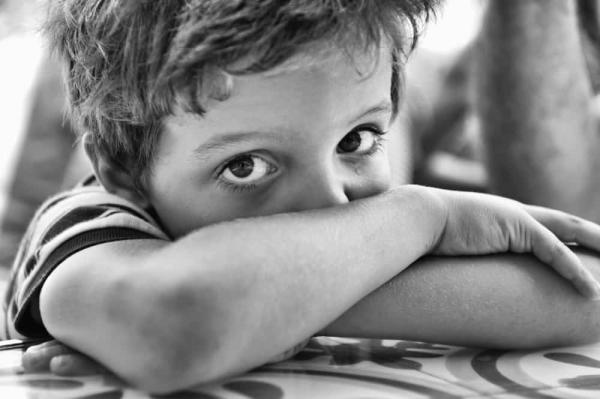
Many years ago, a man walked into an Amish school and shot ten children, killing five, and then killed himself.
This tragedy brought me to tears. However, what happened next changed me.
The families of the victims went to visit the family of the shooter. They extended forgiveness, offered support and attended the shooter's funeral. These families truly chose love in the face of hatred.
How could they begin forgiving that very night? In the book "Amish Grace: How Forgiveness Transcended Tragedy," they said one reason they were able to forgive so quickly was they decided to do so long ago. Every day they recited the Lord's Prayer, including the words, "Forgive us our debts, as we forgive our debtors."
They made the choice beforehand that when the need arose, they would forgive. And when the time came for ultimate forgiveness, they were able to follow through with their choice.
They still grieved and missed their children, but they were able to do so in a world void of anger and resentment.
I hope none of our children have to face such a horrific ordeal. It is certain, however, the opportunity to forgive will occur. What will your child's first reaction be? Now is the time to decide what will happen in that moment.
Here are six steps to help your child choose forgiveness:
1. Value justice
Many kids who have a difficult time forgiving also have a really strong sense of justice. You often hear them saying, "That's not fair!"
And thank goodness!
Imagine life without justice; people who break laws would go free and those who keep them would be destined for jail.
Justice means that my choices matter.
In our family, we talk about justice in terms of consequences. Every action has consequences, good or bad. You choose your actions but not the accompanying consequences.
Teach about consequences and justice through discussion, sharing stories, object lessons and being consistent in applying your own family's consequences.
2. Relinquish responsibility
Forgiveness is not about forgetting justice. Rather, forgiveness is about relinquishing the responsibility of meting out justice.
Fair judgement is the responsibility of parents, teachers, judges and other adults. We teach our kids that while we do not know enough to judge fairly every time, God does.
This life is not fair. There is life after this, though, where God makes all things right and fair and perfectly just.
3. Define forgiveness
Forgiveness means that when someone upsets you, you are not mad at that person nor want to hurt them back.
For example, if your brother hits you (that never happens here, ha!), you might feel hurt and sad. Forgiveness means that even though you have those hurt feelings, you are not mad at your brother. You do not want to hit him back.
Forgiveness is a special case of choosing not to have the responsibility to judge. You do not need to make sure your brother gets the bad consequence he deserves. God (or someone else) will worry about that.
You worry about your own choices. If you choose to hit back, you will get into trouble too. If you choose to stay mad, you will feel upset and angry inside.
Forgiveness is a choice that will help you feel happier.
4. Choose love
Like the Amish, who not only forgave the shooter but also comforted his mother, we can go beyond forgiveness and choose empathy and kindness.
Let's go back to the hitting brother scenario. Here's an example of how you can talk with your child who was hit to help them choose love:
"Maybe your brother was frustrated. Maybe he was tired. Are those good feelings? Now that he chose to hit you, he will probably get a timeout. He most likely does not feel good about making a bad choice. I know you love your brother and want him to be happy. Because he is not feeling happy before or after hitting you, what can you do to help him?"
When you choose love even though others do not, you will have positive consequences. You and others will feel great joy.
5. Make a plan
Develop a plan with your child for what to do when he or she is hurt by another.
Plans will vary according to how children naturally react to their environment and process emotions.
However, each plan should include three basic elements:
1. What to do with your body to stay calm and in control
2. Words to say to yourself to trigger the forgiveness choice
3. Words to say to others to be assertive and kind
Depending on where the child is in life, a fourth step might be a reminder signal from a parent in the form of words or a gesture.
For example, when someone upsets me, I will:
1. Take a deep breath.
2. Tell myself, "I choose forgiveness."
3. Say, "Can you please stop ___." If I forget to calm down and forgive, an adult can say, "Choose love," and this will remind me to forgive.
5. Role play
Make up several scenarios or draw examples from your child's life of times when forgiveness is needed. Take turns acting out the situations and practice reacting immediately with your plan.
6. Live
Steps one through five should happen before the need to forgive arises. These are principles we teach through quiet two-way discussions and thoughtful lessons.
When offense happens, it will not be the first time our kids hear the concepts. However, it might be when they start to truly understand. Now they can apply the forgiveness they have already chosen.
Discuss these times.
Praise situations where you see your child choose to forgive. Share stories from your own life or other admirable examples. Point out when others forgive you or your child.
Help your child live to experience the peace that comes from choosing forgiveness.

